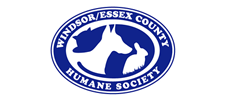Session E: The Century Club
Sub-theme
Research and Theory
Keywords
Older Adults, Equestrian, Human-Animal Relationships, Interpretive Repertoires
Start Date
12-10-2018 3:00 PM
End Date
12-10-2018 4:15 PM
Abstract
In 1996, the Dressage Foundation in the United States started The Century Club, a program that recognizes equestrians who compete with a combined age with their horses of over 100 years. Using discourse analysis, this paper analyzes the interpretive repertoires of older equestrians as they reflect in interviews on the bond with their equine counterpart. Through this analysis, we explore the complex relationship formed over time between older adults and equine athletes in the context of dressage. Key themes identified through the current research are those relating to the specific repertoires used in making sense of ones involvement in equestrian sport, their relationship they have with their horse, as well as the nature of the human-animal bond and the nature of sport among older adults. Specifically, in examining the significance of the relationship between older adults and their horses, current research identifies themes existing across relationships built through a long-term involvement in sport. Considerations for future research include issues that effect older adults like loneliness, the ethics of caring, embodied knowledge, and public engagement in social networks.
Keywords: Older adults, equestrian, human-animal relationship, interpretive repertoires
Session E: The Century Club
In 1996, the Dressage Foundation in the United States started The Century Club, a program that recognizes equestrians who compete with a combined age with their horses of over 100 years. Using discourse analysis, this paper analyzes the interpretive repertoires of older equestrians as they reflect in interviews on the bond with their equine counterpart. Through this analysis, we explore the complex relationship formed over time between older adults and equine athletes in the context of dressage. Key themes identified through the current research are those relating to the specific repertoires used in making sense of ones involvement in equestrian sport, their relationship they have with their horse, as well as the nature of the human-animal bond and the nature of sport among older adults. Specifically, in examining the significance of the relationship between older adults and their horses, current research identifies themes existing across relationships built through a long-term involvement in sport. Considerations for future research include issues that effect older adults like loneliness, the ethics of caring, embodied knowledge, and public engagement in social networks.
Keywords: Older adults, equestrian, human-animal relationship, interpretive repertoires





